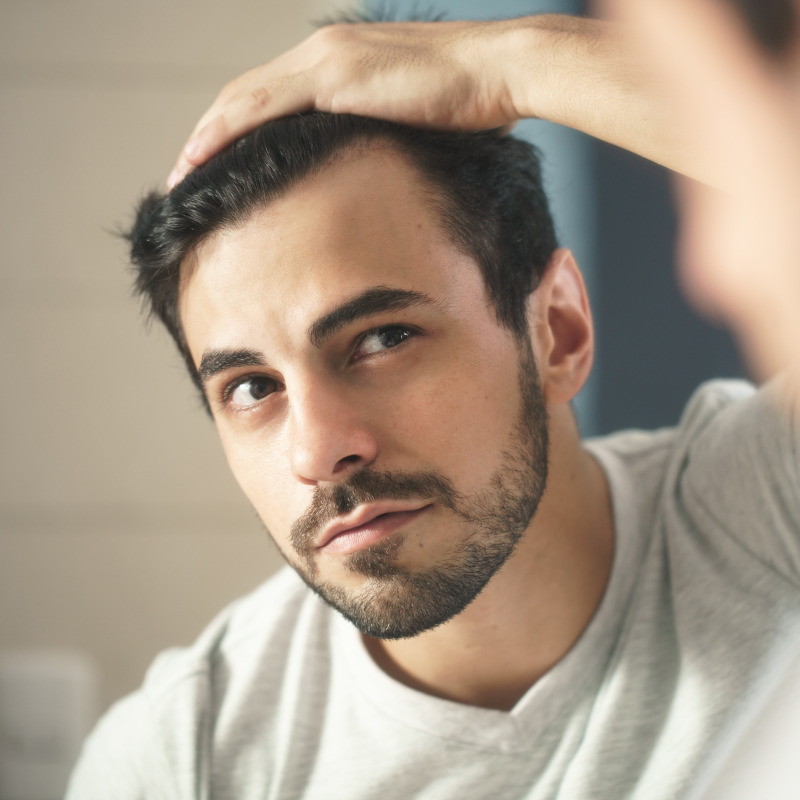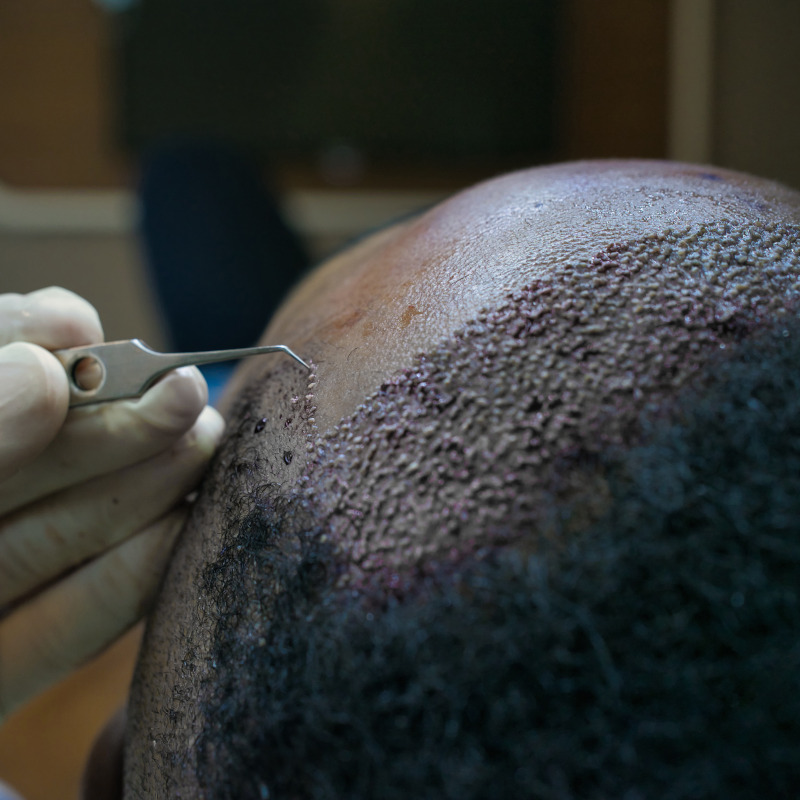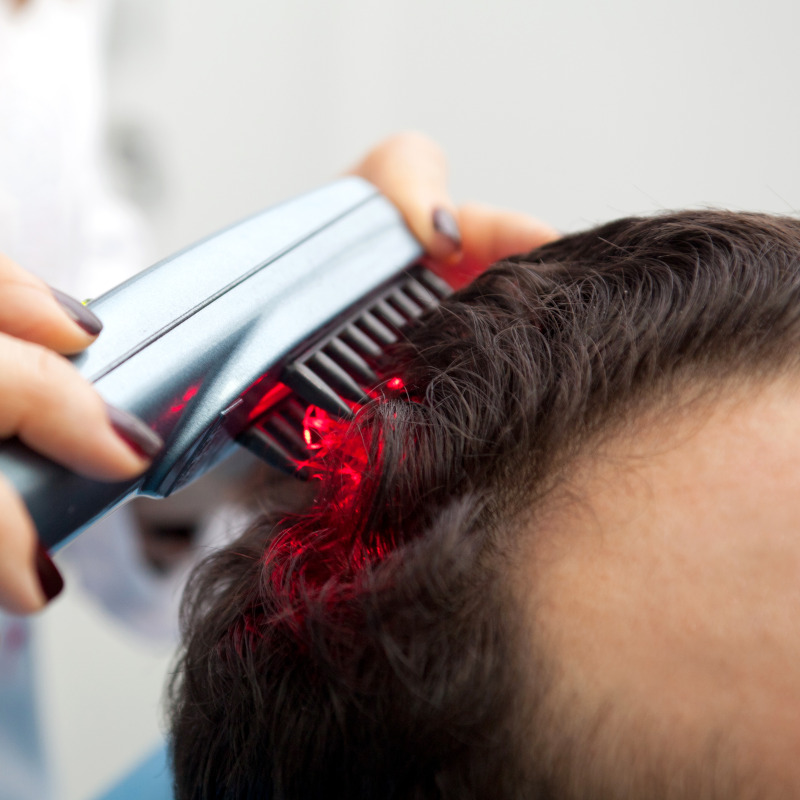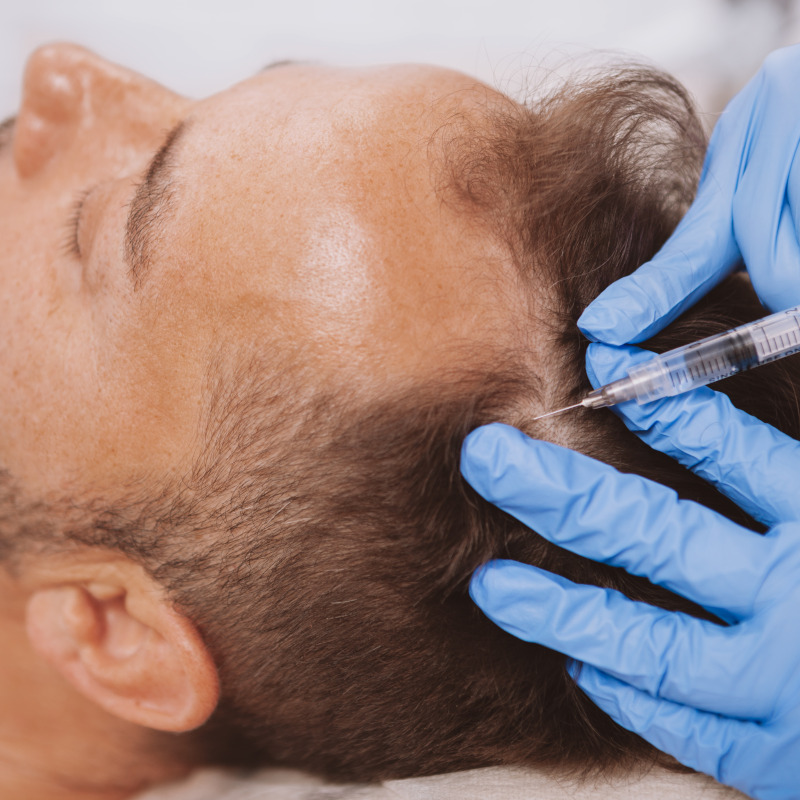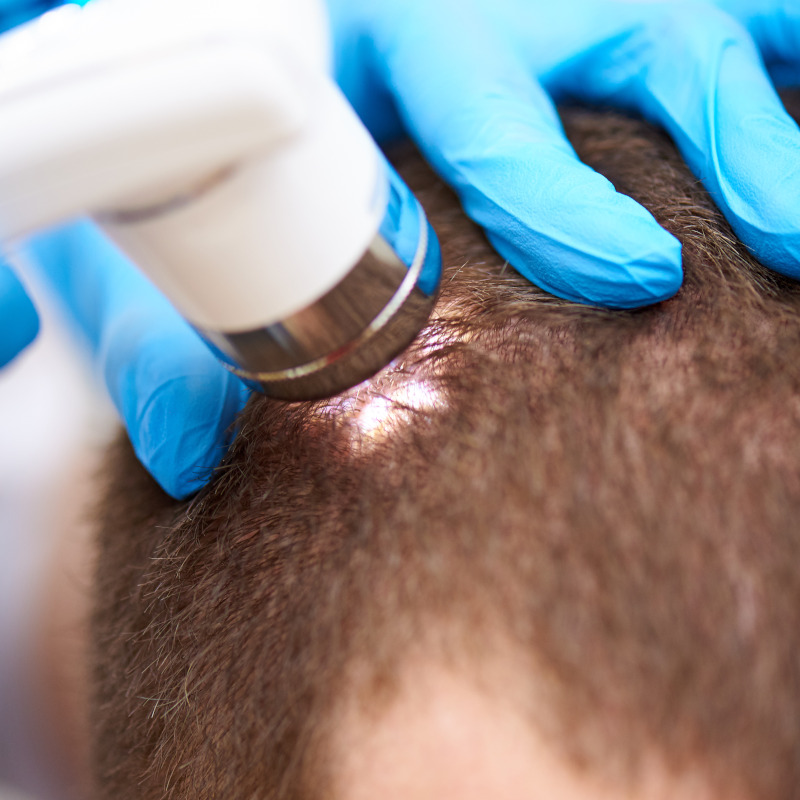What is Traction Alopecia?
Impacting many women and men, alopecia is a condition that causes hair loss. Different forms of alopecia may start during puberty, later in life, or because of a stressful event. Alopecia is the main term used to describe hair loss, and it has different variations. Alopecia types include male or female pattern baldness, alopecia areata, telogen effluvium, and Central Centrifugal Cicatricial Alopecia. Specifically, traction alopecia occurs due to tension being repeatedly placed on the hair follicles. This could be due to often wearing your hair in tight buns, ponytails, or braids. Often, hair loss can make you feel embarrassed or self-conscious. If you suffer from the effects of traction alopecia, board-certified dermatologist Dr. Madeliene Gainers offers a variety of advanced hair restoration procedures. Specializing in the treatment of all forms of hair loss, including training in the treatment of hair disorders in people of African descent, Dr. Gainers will develop a treatment plan that addresses your concerns and reduces hair loss. Please schedule an appointment at Madeliene Elaine in Chevy Chase, MD, located just outside of Washington, D.C., to receive treatment for traction alopecia.
Traction Alopecia Reviews
What Causes Alopecia?
Patients may suffer from different forms of alopecia, and the conditions range in severity. Dr. Gainers will work with you to understand the cause of your hair loss, which is fundamental to determining what treatments work best for your needs. Below are some of the common types of alopecia that Dr. Gainers can help identify.
Alopecia areata
Alopecia areata is an autoimmune disorder that causes hair loss. Typically, it creates patchy bald spots throughout the hair. Over time, the patches may begin to converge, making hair loss look more noticeable.
Androgenetic alopecia
This condition occurs because of a genetic predisposition to hair loss. Often considered a male problem, both men and women can suffer from "male pattern baldness." As an inherited condition, the hair follicles are highly responsive to a testosterone hormone known as dihydrotestosterone (DHT). When this occurs, your hair follicles come under attack and react adversely with the DHT, leading to damaged or scarred follicles. In both instances, the hair growth cycle has been halted and hair loss takes place.
Telogen effluvium
This type of hair loss is caused by extreme stress. Usually, the hair often grows back, but you may require professional treatment to encourage hair growth.
Central Centrifugal Cicatricial Alopecia
CCCA is most commonly seen in black women. It typically starts at the central crown of the scalp and spreads outwardly.
Traction alopecia
Traction alopecia occurs from wearing tight hairstyles, using chemicals to style your hair, or utilizing heat on the hair.
No matter the type of alopecia, Dr. Gainers will work with you to diagnose the condition and prescribe the best treatment option. During your consultation, Dr. Gainers will perform extensive diagnostic tests and provide a treatment plan to reduce hair loss and encourage growth.
Symptoms of Traction Alopecia
The main symptom of traction alopecia is hair loss; however, certain types of alopecia can cause different hair loss patterns. This may include:
- Patchiness
- Thinning near the part or temples
- Complete hair loss across the body
At your appointment, Dr. Gainers will review your pattern of hair loss, discuss your medical history, and evaluate your stress level. She may also need to perform certain diagnostic tests, such as blood work or a scalp biopsy. Because of this, she will not just review the pattern of hair loss but consider all factors. It is also equally important to figure out if you have an underlying condition. This will help Dr. Gainers assess if you have an issue with hormones or an autoimmune problem. With traction alopecia, she will also need to evaluate if any scar tissue is present, which can make it more difficult for hair to grow back on its own.
Treatment Options for Traction Alopecia
Based on the severity of the hair loss, Dr. Gainers offers several innovative treatment options. For less severe cases of traction alopecia, nonsurgical PRP treatment utilizes your growth factors to stimulate the regrowth of damaged hair follicles. Additionally, she will try other more conservative options first, including laser hair therapy, home LLLT, and hair growth medications. However, when nonsurgical treatments are not effective, Dr. Gainers may perform hair transplant procedures, such as follicular unit transplant (FUT) and follicular unit extraction (FUE). Both procedures use different techniques but provide natural-looking results. Please review our hair transplant page for additional information, and schedule an appointment with Dr. Gainers.
Diagnose, then Treat
At Madeliene Elaine in Chevy Chase, MD, we understand the confusion, frustration, and embarrassment that can accompany hair loss. Dr. Gainers makes it her goal to not just improve your appearance but to help determine the reason and prevent further hair loss. If you feel self-conscious about your hair, please schedule an appointment. Dr. Gainers will be with you through every step of your journey. At Madeliene Elaine, we focus on the individual hair loss needs of every patient. Our mission is to help you feel more confident.
